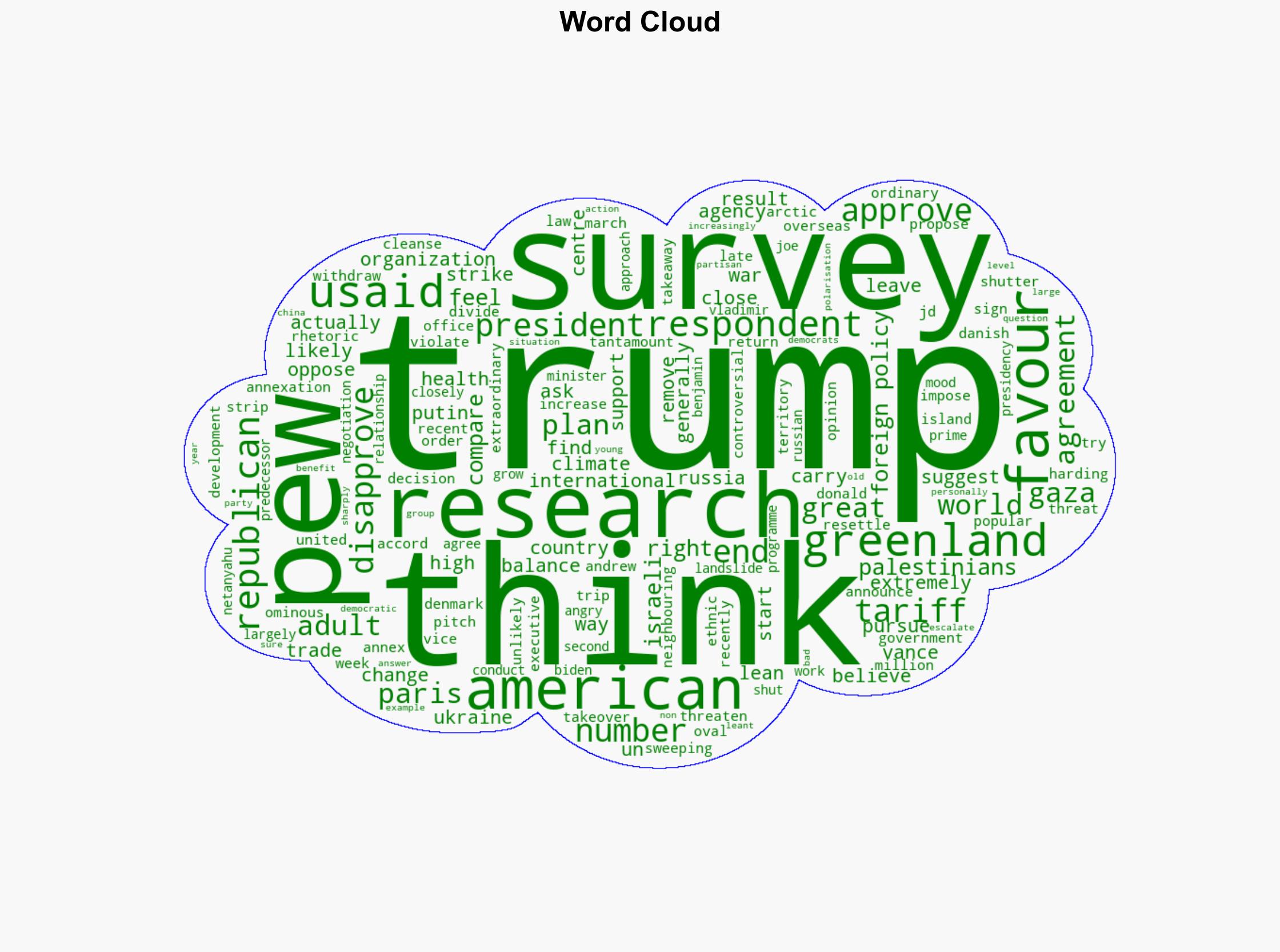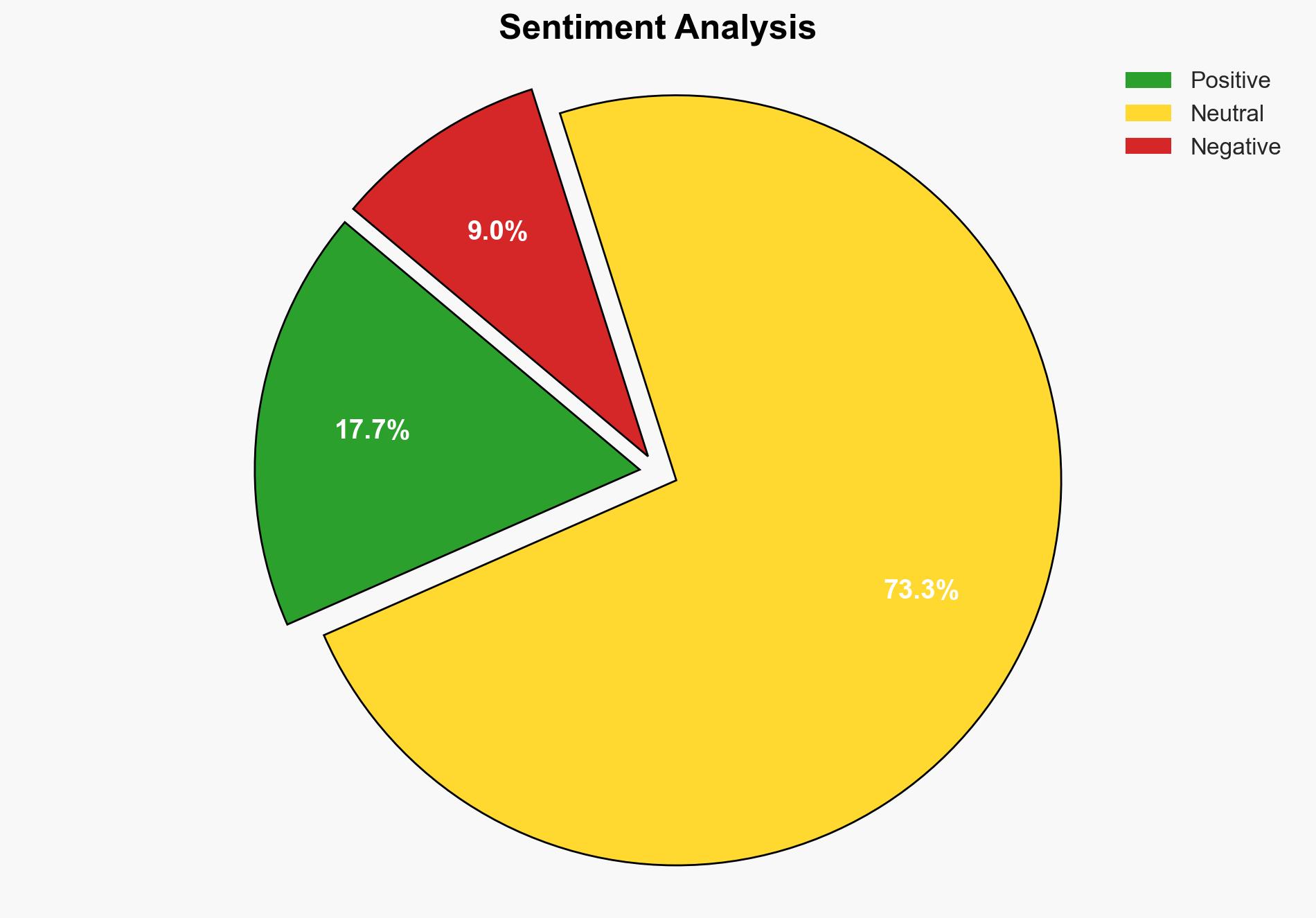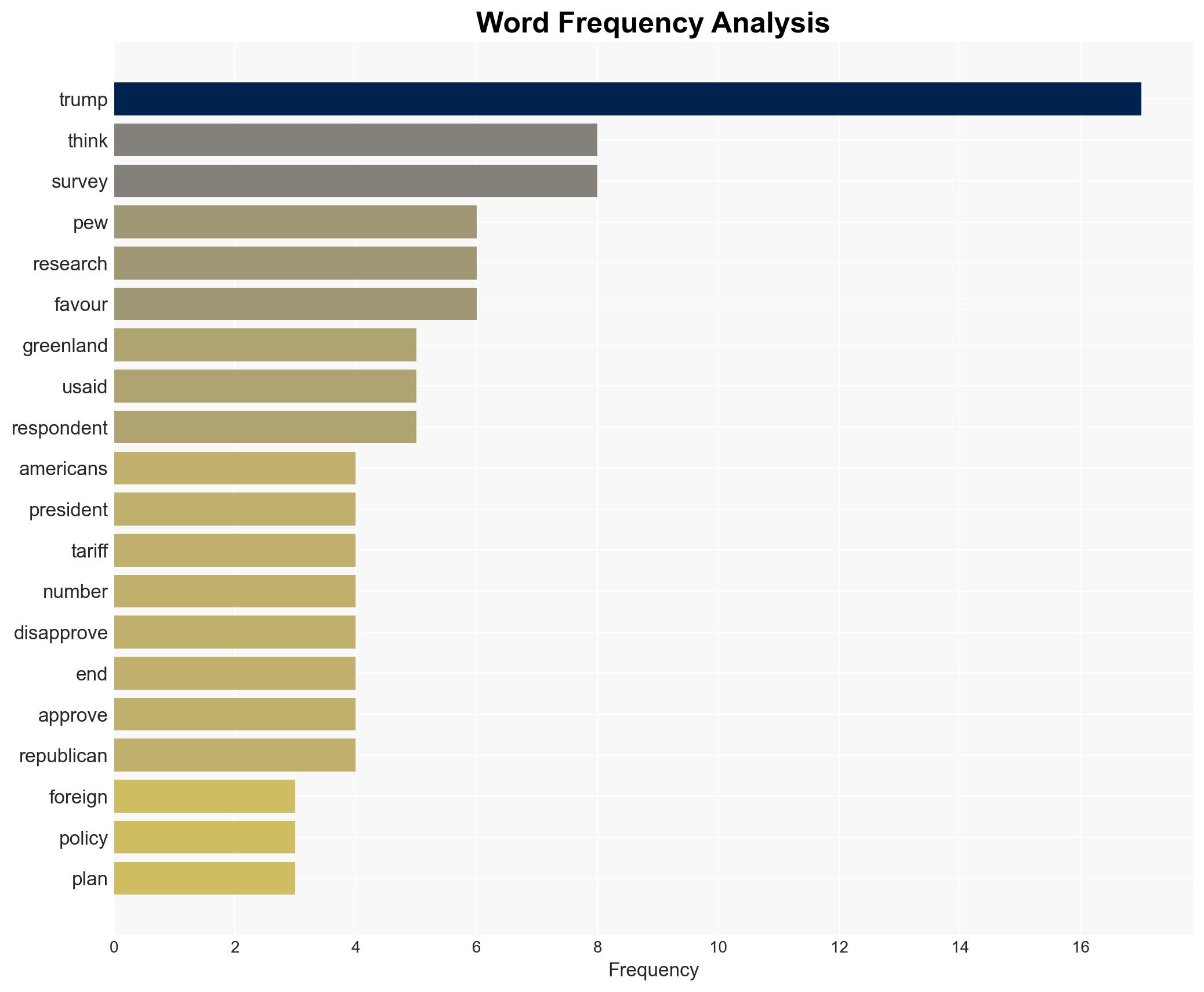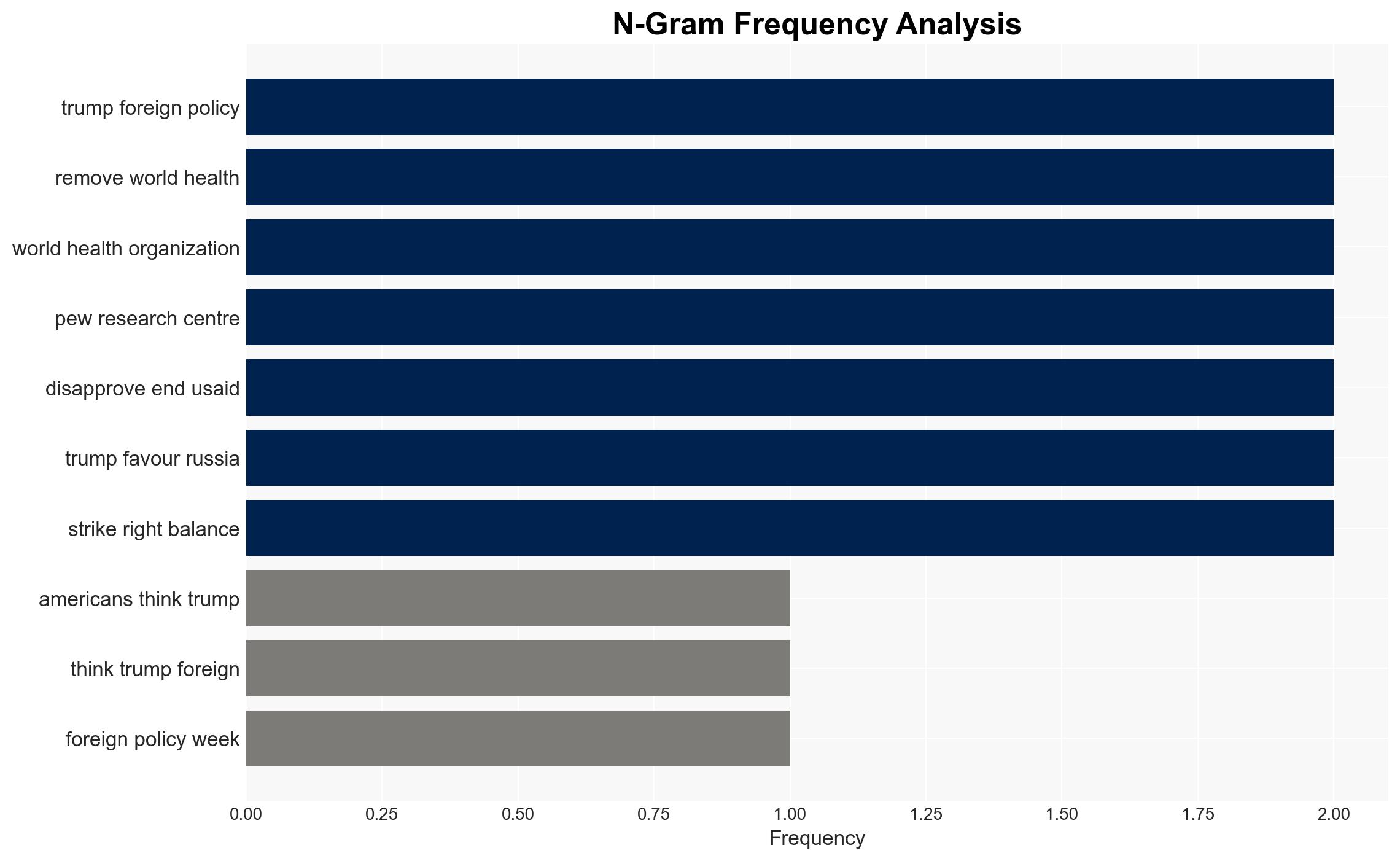What do Americans think of Trump’s foreign policies – BBC News
Published on: 2025-04-08
Intelligence Report: What do Americans think of Trump’s foreign policies – BBC News
1. BLUF (Bottom Line Up Front)
The analysis of recent survey data reveals a significant divide in American public opinion regarding Trump’s foreign policies. Key findings indicate widespread disapproval of certain actions, such as the withdrawal from the World Health Organization and the Paris Climate Agreement, as well as the proposed annexation of Greenland. However, there is notable support among certain demographics for policies perceived as favoring Russia and Israel. This polarization presents strategic challenges and opportunities for policymakers.
2. Detailed Analysis
The following structured analytic techniques have been applied for this analysis:
General Analysis
The survey conducted by Pew Research Center highlights several contentious issues in Trump’s foreign policy. The proposal to annex Greenland and the plan to resettle Palestinians from Gaza have been met with substantial opposition, with many Americans considering these actions unlikely and disapproving of their potential execution. The decision to withdraw from international agreements and organizations, such as the World Health Organization and the Paris Climate Agreement, has also faced criticism, particularly among younger adults and those leaning towards the Democratic party. Conversely, there is a segment of the population, primarily older adults and Republicans, who support Trump’s approach, especially in relation to trade tariffs and perceived favoritism towards Russia and Israel.
3. Implications and Strategic Risks
The polarization in public opinion poses risks to national unity and could impact the U.S.’s international standing. The potential annexation of Greenland and the resettlement of Palestinians could lead to diplomatic tensions and violate international law, affecting regional stability. The withdrawal from global agreements may undermine the U.S.’s role in international governance and climate change initiatives. Economic interests could be threatened by escalating trade tensions, particularly with China, which may result in a trade war with adverse effects on the global economy.
4. Recommendations and Outlook
Recommendations:
- Engage in diplomatic dialogue to address international concerns regarding territorial annexation and resettlement plans.
- Reassess the withdrawal from international agreements to align with global standards and maintain leadership in climate and health initiatives.
- Implement measures to mitigate the impact of trade tariffs and prevent escalation into a trade war.
Outlook:
In the best-case scenario, diplomatic efforts could lead to a de-escalation of tensions and a more balanced foreign policy approach. The worst-case scenario involves increased international isolation and economic downturn due to trade conflicts. The most likely outcome is continued polarization within the U.S., with significant implications for future policy directions and international relations.
5. Key Individuals and Entities
The report mentions significant individuals such as Donald Trump, Andrew Harding, JD Vance, and Benjamin Netanyahu. Key organizations include the World Health Organization, Paris Climate Agreement, and USAID. These entities play crucial roles in shaping the current geopolitical landscape and public opinion on foreign policy.




